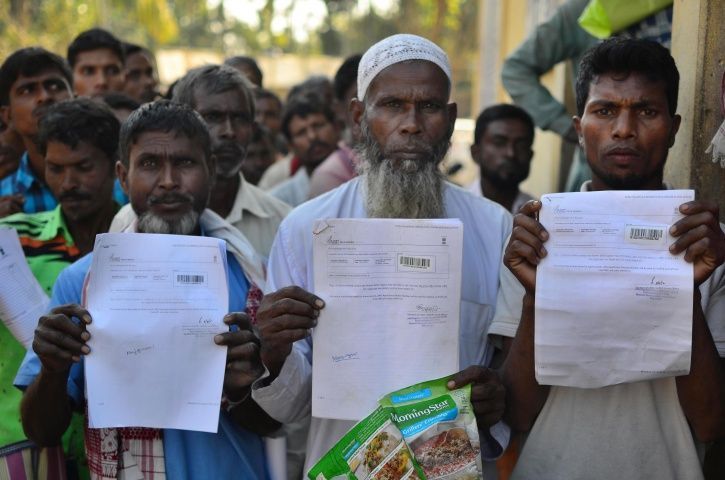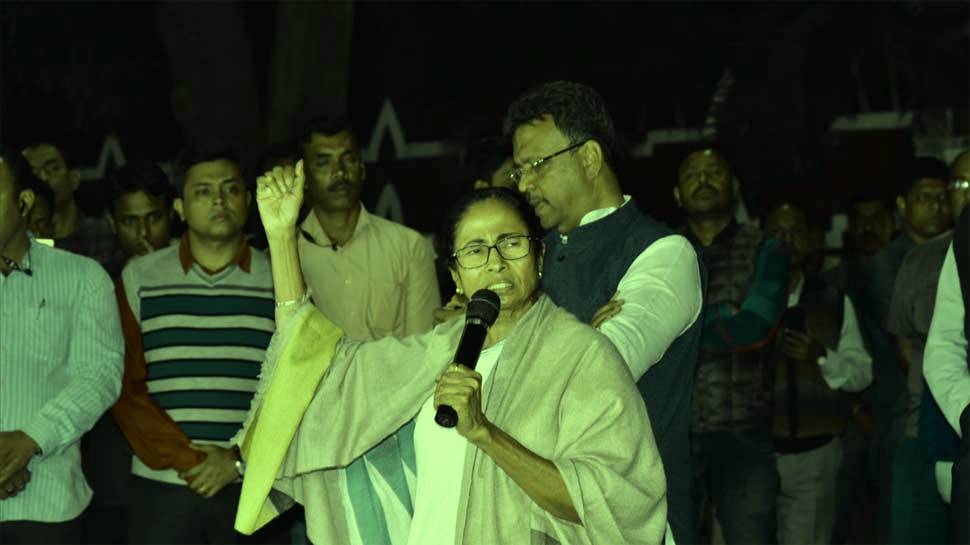
THE CITIZENSHIP AMENDMENT BILL
The politics over illegal migration in India has put a large section of the population in states such as Assam hopeless and homeless. How can the nation-state resolve the crisis without endangering the lives of thousands of people involved?
Anurag Sen is a Lawyer and Social Activist – based in Patna.
An illegal migrant is a person residing in a state without being a lawful citizen of that state, who has crossed the boundary of the state without due permission. The definition of an illegal migrant in India is derived from the Foreigner’s Act, 1946. Although after emergency during Indira Gandhi’s regime, the then government did introduce an Illegal Migration Act, 1983 to legitimise citizenship in India especially in Assam but later on this act was scrapped by the Supreme Court following anomalies in identification and deportation of migrants.
Who is an Illegal Migrant in India?
Today in order make the identification of an illegal migrant in India we rely on the Foreigner’s Act, 1946. As per the provisions of the act, foreigner is a person who is not a citizen of India and further is not entitled to stay in the country beyond the permitted limit. Such person is not entitled to own any property or resources in the host country without permission neither are they entitled to all the constitutional rights of the state (except for few provisions in the constitution).
Any person who is found guilty of offending the provisions of this law shall be liable to deportation by government of India. The report of any such anomalies can be filed by any person who suspects that a foreigner is obstructing the law. Hence an illegal migrant is also suspected through the same process and further reported by the locals or the state officials.
India has record of illegal migrants from neighbouring states like Pakistan, Afghanistan, Burma, Bangladesh, Myanmar and Tibet. As compared to all other states India receives highest number of illegal migrants from Bangladesh residing in the bordering areas of Bengal and Assam.
Proximity of Bangladesh to the neighbouring areas of Bengal and Assam and also the cultural homogeneity between the states makes it convenient for migrants to enter and adapt the culture of the state. Migration to these states has various positive and negative contributing factors like poverty and unemployment in the home state (Bangladesh) pushes people for better opportunities in India.
Illegal migration therefore has become a huge problem in the state of Assam, as documented population growth in the state of Assam grew 288.21 per cent as against 235.1 per cent in all over India. This growth was the result of large scale migration in the state of Assam. The population of illegal migrants in Assam has grown to a rate such that they have become a threat to the local Assamese population. The number of illegal migrants has increased to an extent that they cannot be removed either through deportation or political will. In the state of Assam it is the illegal migrants who dominate the regional political scene and therefore they are used by political parties as vote bank population rather than being deported to their host country.
Pertaining to this problem of illegal migration the state of Assam faces huge socio, political, economic, demographic misbalance in the State which is a major threat to the local and indigenous population of the state.
What is the National Register of Citizen?
National Register of Citizens (NRC) of Assam is the document which contains the names of the citizen of Assam as per the provisions of the Citizenship Bill 1955. Even after the existence of NRC the issue of illegal migration couldn’t be controlled in the state. The problem persisted and also the administrative problem of not being registered in the NRC despite being a citizen of the state came to light, protest from the local groups and student organisation forced the government to take cognizance of the matter. In December 2013, the government directed the state officials to verify the citizenship document of the people in Assam and further update the National Register of Citizen 1955. A time period of 3 years was allotted to complete the entire process but after continuous extensions and delays the registration process is yet to be completed as the Supreme Court of India has directed to complete the final registration by 31st July, 2019 and beyond which no further registration or extension would be granted.
The NRC draft which was submitted on 30th July 2018 included names of 2.9 crore people out of the total population of 3.29 crore and an estimate of more than 40 lakh names have been left out. The people of the state of Assam are right now in condition where they have to prove their citizenship to the state officials who are abiding strict rules and procedure followed by lacunas in the administrative structure.
The registration was initiated for the convenience of local population but it rather has become more dangerous, problematic and chaotic for them. Verification of the citizenship documents of the 3.24 crore people who applied for the same took place through field verification wherein the officials visited individual home for inquiry, documents of the applicants were authenticated and further the family tree of the person was also traced to separate out illegal migrants from the state. Many of the applicants failed to prove their citizenship due to lack of valid documents, mismatch of their personal information on the government document, non-inclusion in the electoral list even after being citizens of the state and various other administrative mistakes such cases accounted to more than 40 lakh in the state and hence they were either marked as D(Doubtful case of entry in the electoral list) or denied citizenship completely. Although the government has extended the period of reapplication for those whose citizenship has not been proved. Neither are they excluded citizens nor are they entitled to deportation or any other legal action till June 30.
Considering the administrative anomalies and deformities if the system it is much likely that many genuine citizens might still not be able to prove their citizenship to their state and in any case it will be the citizen who will bear the loss of denied citizenship and various other entitlements attached with it.
NRC and the Citizenship Amendment Bill
Not only has the NRC process turned chaotic and mismanaged but it is also something which is not required or so to say use less to tackle the problem of illegal migration in the state. As the Citizenship Amendment Bill has also been passed in the Lok Sabha and if the bill becomes an Act in near future it will provide citizenship to all the illegal migrants of the State who have been staying in India for more than 6 years. Considering the existence of this amendment the entire NRC process will become null and void, adding to the discomfort and inconvenience of the local population in Assam.













